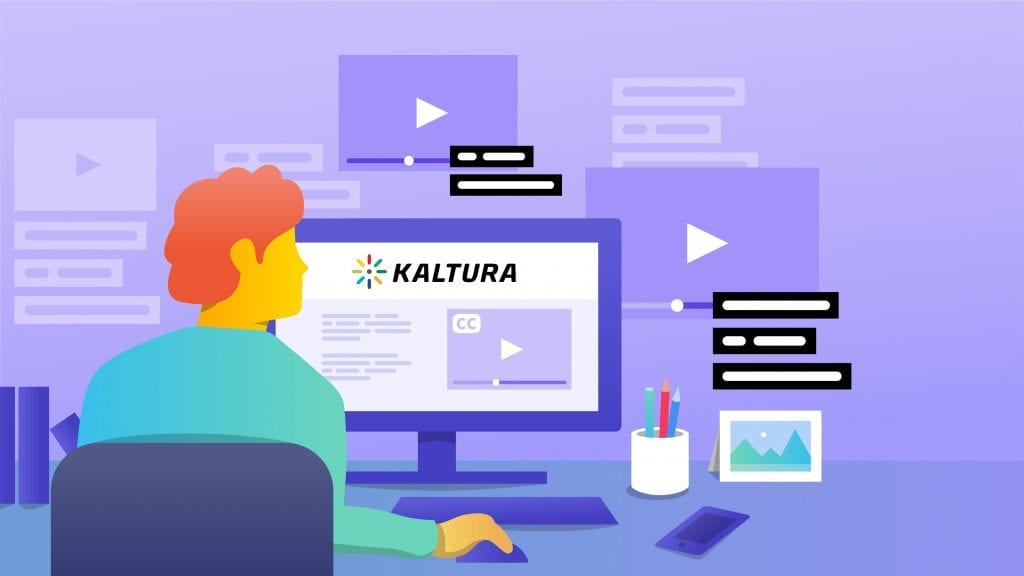How to Add Closed Captions and Subtitles to Kaltura Online Course Videos
Learn how to add captions and subtitles to Kaltura videos online. Easily order a caption file from professional captioners who guarantee 99% accuracy.

Kaltura is a Saas-based open-source video platform that’s useful in creating videos for educational or business purposes. Businesses, schools and other enterprises use Kaltura videos to enhance online learning and training experiences. As more people transition to remote school and work situations, video platforms such as Kaltura will become even more useful.
There are a lot of ways to make online course videos more dynamic. Knowing how to add captions in Kaltura is an important one. Captions and subtitles help make your video content more accessible for diverse audiences and easier for just about anyone to understand. Here’s why and what you need to do to get started using Kaltura closed captioning.
How to Add Captions to Kaltura Videos
You can add captions and subtitles to Kaltura online course videos by using the Kaltura Management Console, or KMC. You can upload multiple subtitle and caption files for your video. For instance, you may want to upload variations in different languages. Once your video is uploaded to Kaltura, follow these steps to add caption files.
1. Select your video entry.
Click on the “Content” tab. Then, choose the appropriate video entry.
2. Assign the caption file.
Click on the “Captions” tab. Add a label for your caption file. For instance, if you’re going to have versions in several languages, you may want to label them by language. You’ll also see other options for categorizing the file. The accuracy defaults to 100 percent, but you’ll have the option to adjust it.
3. Upload or Link to the Caption File.
Order a caption file from Rev. All you need to do is upload your video file, checkout, and Rev will get to work. Rev has a network of 50,000 captioning professionals who deliver 99% accurate captions, usually within 12-24 hours.
Upload or link to the URL for the caption file. Kaltura accepts several file types, including SRT, DXFP or VTT. You can download any of these formats from the Rev captions editor after your file is fully captioned.
Repeat these steps to link additional caption files.
Editing a Caption File in Kaltura
Once you add a caption file to a Kaltura video entry, you have the option to make changes to it. This includes removing or replacing the file or setting it as the default. Or, you also can go into the file itself and make edits to the text.
The Kaltura caption editor feature is easy to use. To download and edit the contents of the caption file, follow these steps:
- Click on the “Content” tab and choose your entry.
- Then select the “Captions” tab.
- Under “Actions,” select “Download.”
- Make any desired edits to the file.
- Upload the revised file, following the steps described above.
- Select “Remove” to delete the previous version.
Link Your Kaltura and Rev Accounts With the Rev & Kaltura Integration
To make your experience adding captions and subtitles to your course videos, you can link your Kaltura and Rev accounts. Once you’ve done that, follow some simple steps to order captions from Rev:
- When you’re logged into KMC, create a “Rev” category and use it to tag your videos. Then save.
- When we receive the videos tagged “Rev,” we’ll create a new category called “Rev – Captioning.”
- When the order is complete, it will be moved to a subcategory labeled “Completed.”
Knowing how to add captions in Kaltura is an important skill in creating online course videos that accessible to a wide and diverse audience. We make it easy, with accurate transcription, available in every file type Kaltura accepts.
The Benefits of Using Kaltura Closed Captions
Kaltura closed captioning makes it easier for your audience to understand the content of your videos in a number of key ways.
Enhanced Clarity
Different people process information in different ways. Some people prefer to process words they can read or find captions easier to focus on, even if there’s accompanying audio. Incorporating Kaltura closed captioning also helps minimize potential misunderstandings that could occur if someone watching the video mishears a word or a phrase. Simply stated, it’s another way to make your videos user friendly.
Accessibility for People With Disabilities
The American Disabilities Act (ADA) requires colleges, universities and other learning institutions to make accommodations for people with disabilities. This includes people with hearing impairments. Kaltura closed captions show the words in print across the screen, so the content is still useful to someone who is unable to hear the audio.
This is a legal requirement. But it also makes video learning even more accessible than even attending an in-person class for a lot of people. This may be a key reason a person chooses online courses when given the option.
Translation for Non-Native Speakers
Business and learning have gone global, and not everyone speaks the same native language. You can use Kaltura closed captioning to add translated subtitles to your online course videos, making them accessible and understandable to audiences from around the world. This can be extremely useful if you’re using Kaltura videos to teach people who have immigrated from other countries or for international audiences.
Subscribe to The Rev Blog
Sign up to get Rev content delivered straight to your inbox.



